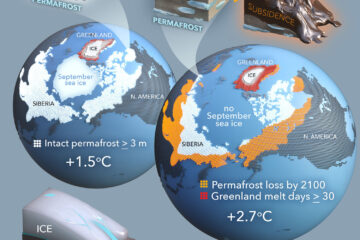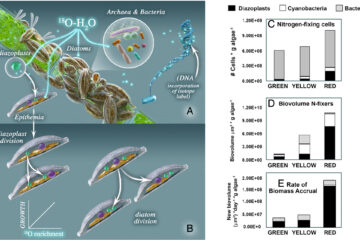Below‐ground process responses to elevated CO2 and temperature: a discussion of observations, measurement methods, and models
Rising atmospheric CO2 and temperatures are probably altering ecosystem carbon cycling, causing both positive and negative feedbacks to climate. Below-ground processes play a key role in the global carbon (C) cycle because they regulate storage of large quantities of C, and are potentially very sensitive to direct and indirect effects of elevated CO2 and temperature. Soil organic matter pools, roots and associated rhizosphere organisms all have distinct responses to environmental change drivers, although availability of C substrates will regulate all the responses. Elevated CO2 increases C supply below-ground, whereas warming is likely to increase respiration and decomposition rates, leading to speculation that these effects will moderate one another. However, indirect effects on soil moisture availability and nutrient supply may alter processes in unexpected directions. Detailed, mechanistic understanding and modelling of below-ground flux components, pool sizes and turnover rates is needed to adequately predict long-term, net C storage in ecosystems. In this synthesis, we discuss the current status of below-ground responses to elevated CO2 and temperature and potential feedback effects, methodological challenges, and approaches to integrating models and measurements.


